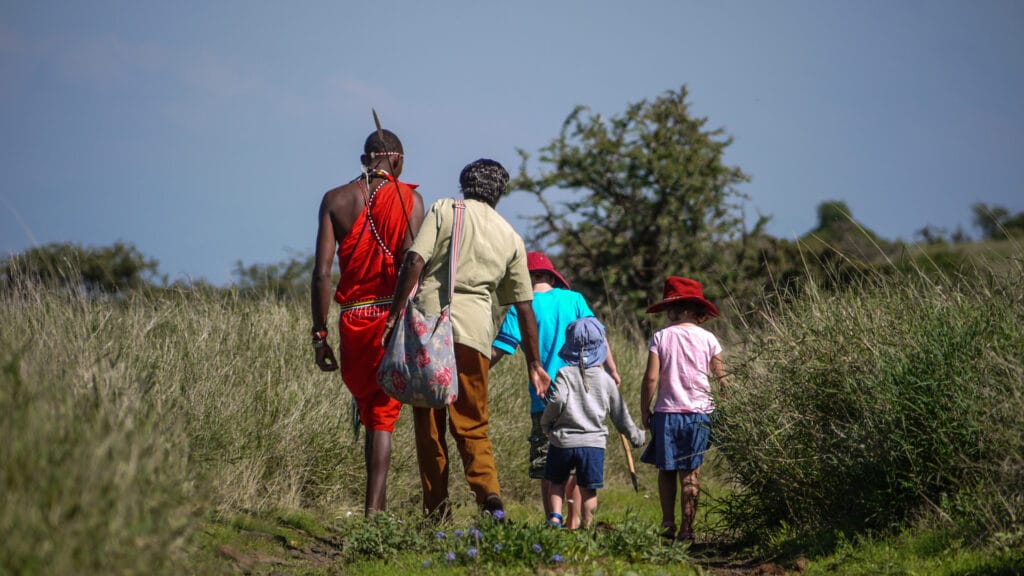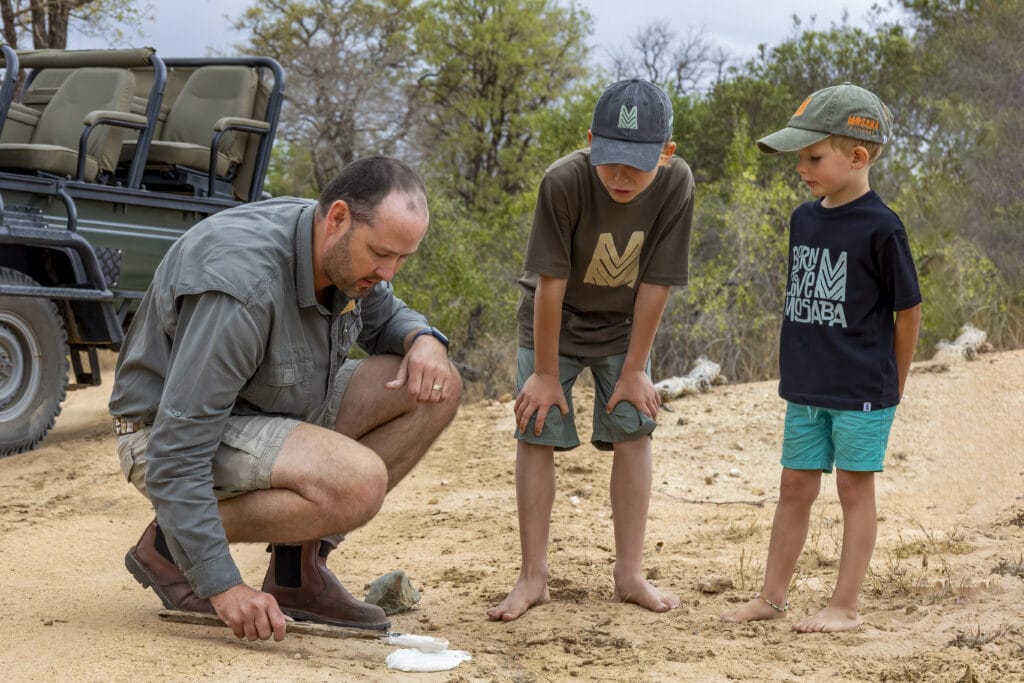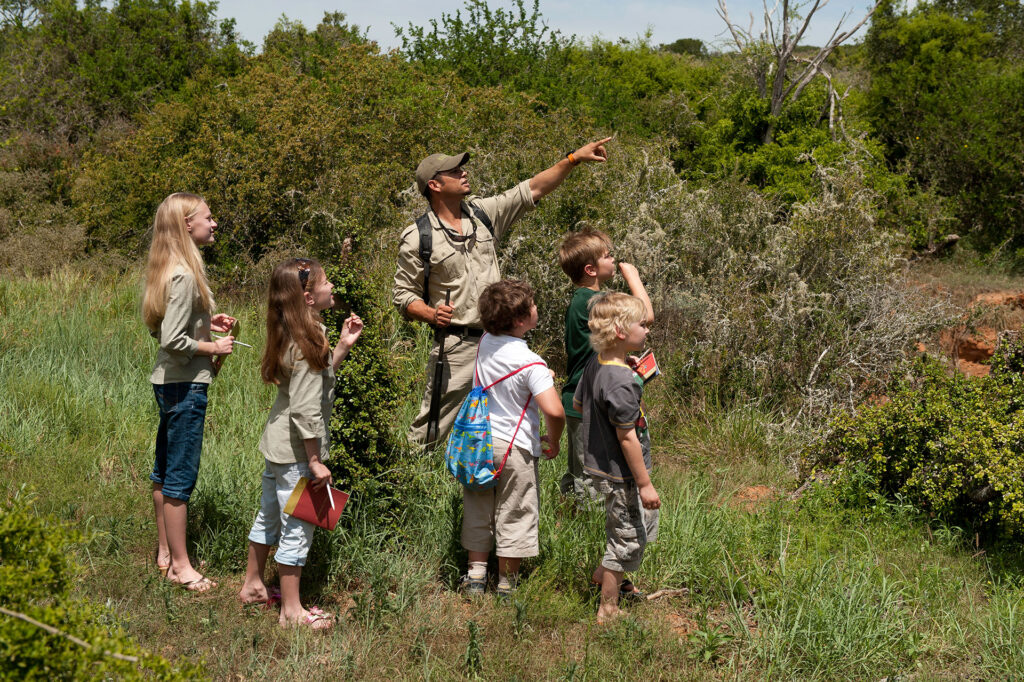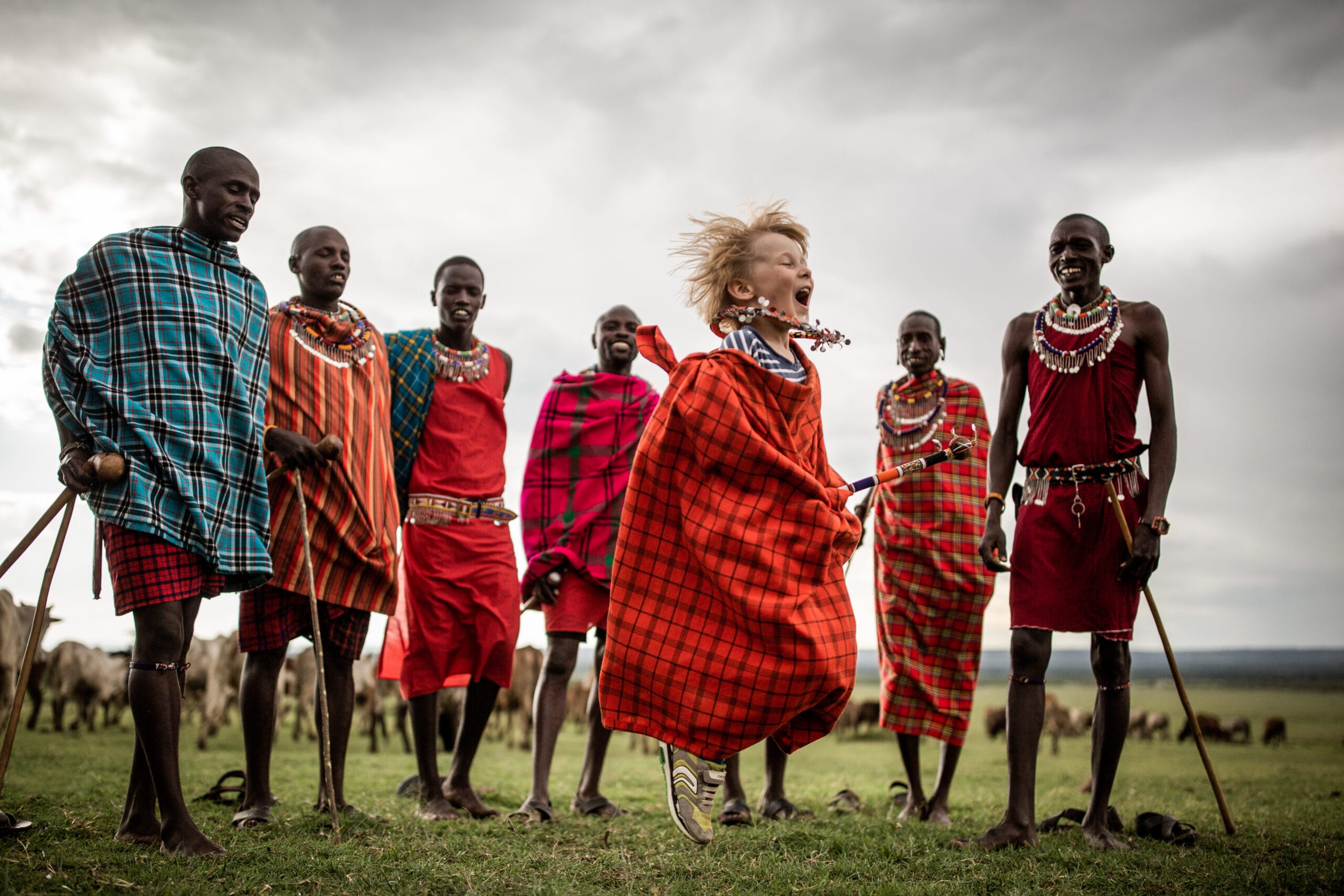A family safari is one of the most exciting and unforgettable travel experiences you can share with your loved ones. The chance to witness wild animals in their natural habitat, explore diverse landscapes, and bond as a family in the great outdoors is truly magical. However, planning a family safari requires thoughtful consideration to ensure the experience is the holiday of a lifetime dreamed about. If you’re thinking about embarking on this adventure, here are some key questions to consider when planning a family safari.
1. What Age is Suitable for a Family Safari?
A common question for families is when to take children on a safari. While there’s no one-size-fits-all answer, and we have planned safari holidays for families with babies upwards, most safari lodges and tour operators suggest that children be at least 6 or 7 years old to get the most out of the experience. This age is ideal in many ways as children are not only better able to take it all in and enjoy it to its fullest, but they also tend to remember it as well
For younger children, it’s important to consider both the length of the trip and the type of safari experience. Some lodges have age restrictions due to safety concerns, especially when it comes to walking safaris or tracking wildlife on foot. Be sure to check with the tour operators about age limits for specific activities. Additionally, very young children may find the experience tiring, especially with early morning game drives and long travel times.

2. Will Children Get Bored?
No! The key is to choose the right properties and combination of experiences. By using camps and lodges where guides understand children, for example asking a 6 year old to be quit and still in a vehicle for four hours simply doesn’t work, ensures everyone is engaged throughout. You may stop to take plaster casts of a lion footprint or learn how to track the wildlife. The guides who specialise in family safaris will get an understanding of your children’s interests and tailor the experience accordingly.
Many properties won’t have a specific children’s programme (some do), but they naturally understand and entertain the children – of any age. Choose a safari destination that offers experiences which will appeal to your children.
Additionally, consider the length of the trip. A week-long safari may feel like a marathon for younger children on paper but by combining properties in different areas the variety of wildlife, activities and experiences automatically increase. Plan by balancing game drives with other fun activities, like visiting local villages or enjoying the lodge’s amenities. Incorporating some downtime for play or relaxation is essential, especially on longer trips.

3. Are All Countries Malarial?
Many families with younger children would prefer to visit a country which is not considered to be malarial, thus removing the need for malaria prophylactics. South Africa is an excellent destination for family safaris for many reasons, including large parts of it being malaria free. With world class wildlife viewing, family friendly properties with accommodation suited to families, and a huge array of experiences and activities throughout the country, it is an ideal choice.
If you’re visiting a region where malaria is prevalent, consult your doctor about anti-malarial medication as many are available in paediatric form.
4. Which Countries Are Best for Active Families?
For families seeking an active safari, there are destinations that offer a blend of adventure and wildlife. Some countries stand out for their variety of active experiences that go beyond traditional game drives:
- Kenya: Known for its stunning landscapes, Kenya offers excellent opportunities for families wishing to do more that just wildlife view. Camel supported walking safaris, bush camping, riding safaris, mountain biking and cultural interactions are all possible during a trip here. With its beautiful coastline of the Indian Ocean as well it is an ideal destination for a safari and beach holiday.
- South Africa: With options for cycling safaris, horse riding, and beach activities, not to mention the penguins and Table Mountain in Cape Town, conservation activities and whale watching (seasonal), South Africa’s diversity of landscapes makes it an excellent destination for active family safaris.

Are some countries better suited to families with teens?
When planning a safari for families with teens, it’s important to choose destinations that offer a mix of adventure, wildlife, and engaging activities. With older children additional activities such as walking safaris and mokoro (dugout canoes) trips become possible.
- Botswana: Offering off-the-beaten-path experiences like mokoro rides and boat trips in the Okavango Delta and game drives in remote, pristine areas. Easily combined with areas such as the Victoria Falls and Cape Town for more diverse experiences.
- Zambia: Often considered to be the ‘home’ of walking safaris in Africa. Remote and atmospheric bush camps combine with the day and night game drives in the national parks to offer a wonderful off-the-beaten track experience. In addition Livingstone is the home of the Victoria Falls in Zambia with all the activities possible in this area.
These countries not only provide incredible wildlife viewing but also ensure that teens remain engaged and entertained throughout the trip with exciting outdoor activities.
5. Which Countries Work Well for Different School Holidays?
When planning a family safari, timing is crucial. Different African countries experience varying seasons and weather patterns, so it’s important to align your travel plans with school holidays to ensure the best experience. Here’s a guide to which countries work best for family safaris during specific school breaks:
Summer Holidays and October half term (June to October)
- All prime safari countries – The European Summer is the dry season in East and Southern Africa, making it the ideal time to see wildlife in action, as animals gather around waterholes. These months are perfect for safaris, as the weather is generally warm and sunny, and game viewing is excellent. Towards the end of the season you can expect temperatures to be increasing, with wildlife congregating in ever increasing numbers around water sources.
This is also time to catch sight of the famed river crossings of the Great Migration in the Masai Mara in Kenya and Northern Serengeti in Tanzania.
Christmas Holidays (December – January)
- Kenya & Tanzania: This is a great time to visit East Africa. The so-called ‘short rains’ should be over by early December leaving plenty of fresh vegetation. You can expect fewer visitors, warm and dry weather and excellent wildlife viewing.
- South Africa: December is summer in the Cape Region of South Africa, so expect warmer temperatures and excellent wildlife viewing at the private reserves. A safari in Botswana works brilliantly if combining with Cape Town due to the direct flights between the two.
- Botswana: Despite this being the time when countries in Southern Africa receive their rains, this is a country which can be visited throughout the year. With sandy soil, permanent land and water wildlife never has to move too far. You can expect warm days with storms usually lasting a couple of hours clearing the air.
Easter Holidays (March – April)
- Botswana: This time marks the start of the dry season, and it’s a beautiful period for bird watching and wildlife viewing. The Okavango Delta tends to be at its lowest in these months so choose a camp located on a deep water channel for water-based activities.
- South Africa: the Cape is coming into it’s Autumn but you can still expect warm days and great wildlife viewing. The safari options in the north of the country are at the end of their rainy season and weather should be dry and warm, cooling down overnight.
February Half Term
- East Africa: If you want to witness the Great Migration, February is a fantastic time to visit the southern plains of the Serengeti with the herds congregating whilst they calve, which also brings predators into the area. Kenya is also wonderful at this time of year, with few people. In both countries you can expect warm and dry weather.
Final Thoughts: Planning for Your Family Safari
A family safari offers the chance for unique bonding and adventure in the heart of nature. By considering these key questions about age suitability, malaria risks, and the best times to visit different countries, you can ensure that your family safari is a success. No matter where you go, make sure to plan your trip carefully and tailor the experience to your family’s needs. Choosing a destination that offers a mix of wildlife, adventure, and outdoor activities will ensure that your safari is dynamic and fun for everyone, especially those with older children or teens. Most importantly, enjoy the magic of the African wilderness together.
If you would like to chat about planning a family safari or for any other holiday to Africa or the Indian Ocean, please do get in touch with Lucinda and she would be delighted to help.
